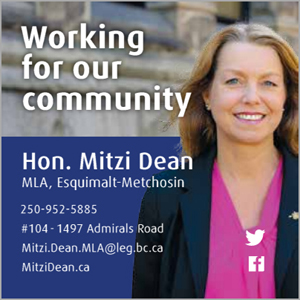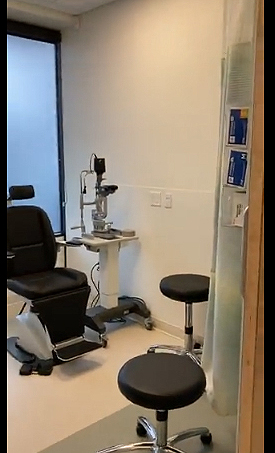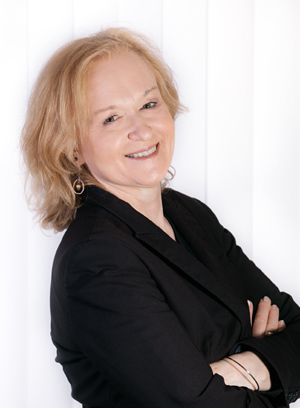February 23, 2022 | VICTORIA, BC
by Mary P Brooke | Island Social Trends
Today the Greater Victoria Chamber of Commerce hosted BC Finance Minister Selina Robinson for an online presentation.
An online platform called AirMeet was used for the event, which included the opportunity for networking among participants in small groups ahead of the main presentation. Over 100 people attended online.
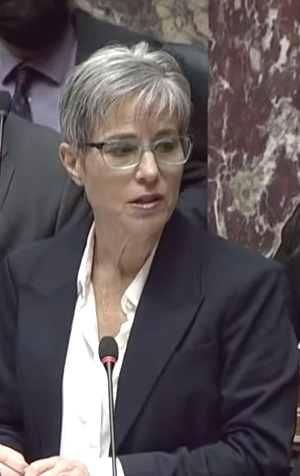
Robinson highlighted the social support aspects of the budget, which within the government’s StrongerBC Plan are the primary philosophy and theme of the Horgan NDP government.
“What kind of economy do we need here that works for British Columbians.?” mused Robinson, which she supported with her presentation today.
Robinson had delivered her full BC Budget 2022 yesterday, February 22, in the BC Legislature.
Key points today:
Finance Minister Robinson’s formal remarks to today’s Greater Victoria Chamber of Commerce business audience included mention of key budget initiatives including increasing the number of urgent primary care centres and the number of paramedics across BC. There is funding to assist the transition from homelessness, to support sexual assault centres. Child care spaces are being increased as the effort to reduce the costs of child care come down for families. Funds are earmarked for tourism, arts, culture and music sectors. These sectors have yet to rebound, said Robinson.
The BC Wildfire Service and Emergency Management BC services will be expanded now, in response to climate crisis needs. Preparation ahead of critical weather and climate events is key, and will help contain costs in the long run (in that fires, flooding, etc will presumably have less impact if preparations — including personnel — are in place).
“A stronger economy that works for everyone,” was stated as a goal. “People who live here should be poised to benefit from the growing economy,” Robinson said today.
The challenge to find skilled labour was highlighted. BC projects about one million job openings over the next 10 years.

On the housing front, Robinson reiterated something that Premier Horgan mentioned last week, that getting on-campus housing expansion done will free up secondary suites within private homes in surrounding neighbourhoods around the UVic and Camosun campuses. Meanwhile, 500 new student spaces will be opening up at UVic as their ECS building expands, which will put new demand on access to student housing.
Questions from Chamber members:
The online question period today was led by Victoria Chamber CEO Bruce Williams. Chamber CEO John Wilson was also attending the live event.

Williams highlighted that the Victoria Chamber will offer free membership to Indigenous-led businesses.
Questions were posed to the Finance Minister about tele-health, and the medical crisis around providing longitudinal medical care and holistic medical care. “COVID has identified gaps in the system”, said Robinson, saying that the focus to improve health care in BC revolves around increased investments in urgent primary care centers (UPCCs) and team-based care (where there is less dependence on a GP or doctor being central to the facility). Recently at least three walk-in medical clinics have announced they will be closing in April due to a lack of doctors on staff (including Eagle Creek in View Royal, Colwood walk-in, and a clinic in James Bay). Increasingly, doctors are showing a preference to doing tele-health, which frees up their lifestyle options.
Business expenses:
Williams asked a question from a Chamber member about increasing the Employer Health Tax (EHT) exemption level from $500,000 to $1.5 million. That “took $207 million more than anticipated from BC Employers last year,” says the Victoria chamber, though businesses did know it was coming.
Under the new EHT exemption brought in by the Horgan government just a few years ago, the taxing of large businesses and organizations has made it possible eliminate Medical Service Program (MSP) premiums from individual household budgets. Robinson said an increase in the exemption threshold is not being considered.
As well, the annual five days of paid sick days in BC are to be paid by employers is considered a cost burden on businesses, said Williams. Robinson said that without paid sick leave it’s bad for workers, employers and co-workers. She delineated that paid sick leave increases productivity and helps retain trained staff (noting that acquiring trained staff is already a challenge for businesses in the Greater Victoria area); when people go to work sick there is reduced risk of injury. Paid sick leave improves morale and increases labour force participation, said Robinson.
Robinson defended the BC minimum wage increase, that is now going to be tied to the rate of inflation. She wants it to “be predictable so businesses can plan accordingly” and thereby provide stability for businesses over time. Presently the wage is $15.20 per hour (the increase to that level occurred on June 1, 2021).
Williams revealed today that an Island Chamber Policy Alliance of chambers around Vancouver Island are putting their heads together toward providing an examination and advocacy for policy that is island-specific. Robinson says she’s looking forward to hearing more about what is developed there.
Child care supports help businesses retain employees. “The Chamber has long advocated for child care as an investment in our economy, and we applaud the province’s commitment to adding 40,000 new spaces within seven years,” it was stated by the Chamber.
Supply chain:
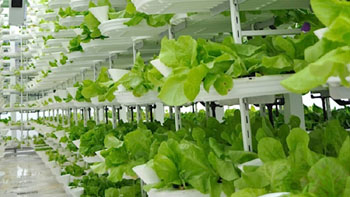
Supply chain vulnerabilities were discussed today. Robinson noted that people are now more aware of food security and food sovereignty. “Between the pandemic and flooding, understanding the food supply chain has become top of mind for so many,” said Robinson.
“When there’s no local industry, manufacturing or local food — what happens to that supply chain — we’ve all become incredibly sensitive to that. It’s become a top priority,” said Robinson today.
This past weekend Agriculture, Food and Fisheries Minister Lana Popham announced that agri-tech (and specifically vertical farming) is now allowed in the Agricultural Land Reserve, which will help improve food security on the island.
Training for a changing world:
Micro-credentials that can often be studied online help with up-skilling or re-skilling so that people can “be ready for the economy of the future,” said Robinson, adding: “A lot of people can’t take the time to go back to school for four, three or two years.” Said Robinson to British Columbians looking to study online: “Don’t limit yourself to what’s just on the island.”Though Williams added: “However, we do like students on campus, because they are workers.”
Tourism sector:
Budget 2022 includes $25 million to help with recovery efforts. The budget also includes $84 million for planning and capital funding for upgrading the Belleville Terminal in the downtown Victoria harbour area. These are significant supports for the local economy.
Today Williams noted that the cruise-ship industry is opening up again, and that Victoria’s tourism sector will become more robust again for the Victoria economy.
The amalgamation question:
“Good on Saanich and Victoria for having the conversation about the citizens assembly,” which is the potential process toward amalgamation of municipalities. There are 13 municipalities in the Greater Victoria area.
Robinson said that the Minister of Municipalities and Housing will be discussing the submission with the Saanich and Victoria mayors. Nothing has been budgeted regarding any of that, said Robinson. “That’s not how budgeting works,” she said, as in funds are not earmarked for potentialities.
Saanich Mayor Fred Haynes was in the virtual online audience today.
===== RELATED:
BC Budget 2022 highlights future-forward intentions (February 22, 2022)
Agritech in Agricultural Land Reserve supports food security (February 19, 2022)
Doctor shortage highlighted by clinic closure in View Royal (January 18, 2022)
===== ABOUT THE WRITER:
Mary P Brooke is the editor of Island Social Trends, an online publication which focuses on the socioeconomic impacts on communities, businesses, and families.
Island Social Trends went fully online in mid-2020 at islandsocialtrends.ca as the evolution of previous publications by Brookeline Publishing House Inc, including West Shore Voice News, Sooke Voice News, and MapleLine Magazine.




